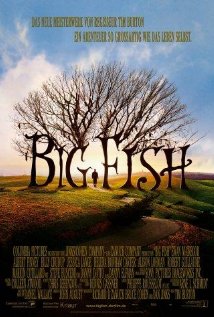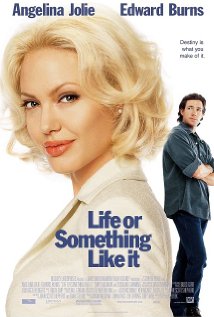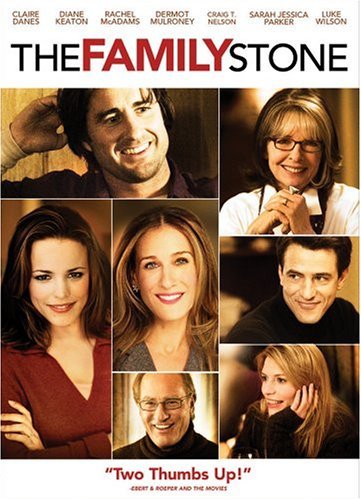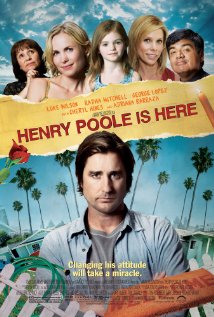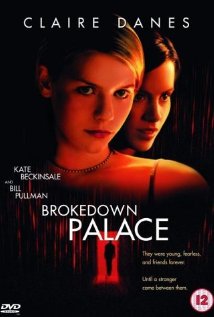Tags
catechesis, Catholic, created for a purpose, current-events, faith, fearfully and wonderfully made, ministry, movie, movie ministry, Psalm 139, religion, Simon Birch
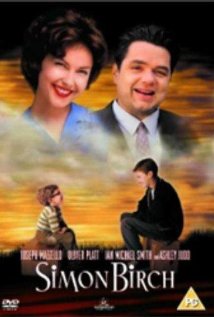 Adult Joe Wenteworth: [voiceover] I am doomed to remember a boy with a wrecked voice, not because of his voice, or because he was the smallest person I ever knew, or even because he was the instrument of my mother’s death, but because he is the reason I believe in God. What faith I have, I owe to Simon Birch, the boy I grew up with in Gravedown, Maine.
Adult Joe Wenteworth: [voiceover] I am doomed to remember a boy with a wrecked voice, not because of his voice, or because he was the smallest person I ever knew, or even because he was the instrument of my mother’s death, but because he is the reason I believe in God. What faith I have, I owe to Simon Birch, the boy I grew up with in Gravedown, Maine.
Rev. Russell: What are you doing sitting in a corner Simon?
Simon: Thinking about God.
Rev. Russell: In a corner?
Simon: Faith is not in a floor plan.
Quotes borrowed from IMDB.com.
You could almost call Simon Birch a movie about a big boy with little faith and a small boy with big faith, but that would hardly do it justice. Simon Birch is a small boy, so small he wasn’t expected to live more than a week when he was born. Simon KNOWS he was created for a purpose, but somehow manages to get under everyone’s skin and find lots of trouble in his search. His parents seem to care very little for him and it’s actually his best friend, Joe and Joe’s Mom that are the only ones who really seem to care about Simon. Add to that, Joe and Simon’s search for Joe’s biological father (his mother refuses to tell) and you’ve got a movie with a lot of meaning.
First, it gets under everyone’s skin that Simon goes around saying that he was created for a purpose. Why? Aren’t we all? Granted, we may not run around telling people like Simon does, but why did it bother everyone so much? Even the Reverend seems to dismiss Simon’s questions about purpose. He agrees with Simon saying that he’s glad that Simon’s faith helps him deal with his “condition,” but then when Simon leaves, he makes a little comment under his breath that makes you realize that he didn’t really believe in Simon’s calling. And how does a child who is basically ignored by his parents and ridiculed by most everyone else, come to such a conclusion? Where does that faith and sureness come from? About midway through the movie, Simon has an exchange with Joe’s mothers boyfriend, Ben, where he says he’s watching for a sign – sort of like Moses and the burning bush, but he guesses God’s not into that type of communication anymore. But at the same time, Simon says he feels like God needs to hurry up, he thinks his time is running out.
Those of us who are believers, believe that we are called by our baptism to be saints. What do you think you may be being called to do? Have you felt that little tug at your heart to do something, get more involved, or do something differently? What? Do you recognize it at the time or do you see it in hindsight? Do you think Simon would agree in light of his insistence that he is God’s instrument?
Simon is being raised by parents who don’t care about him other than when everyone is talking about one of his escapades. Joe defends Simon to them telling them he’s a hero and that they don’t deserve him. We see so many cases of parents who don’t deserve the gift of a child on the news – and in society as a whole. Even when kids are a nightmare, do we still see them as a gift from God, or just another chore? Do we encourage them? Do we help them on their faith journey, or do we put up obstacles to it? Parents are supposed to be the primary teachers of their children. All of the other learning out there is great and they should be exposed to many different methods of learning including being able to get the gift of the experiences others can provide, but do we do our part, or do we expect others to do it for us? Are we doing our part to educate ourselves to make sure children receive the best we have to offer?
Simon Birch also brings up a chance to talk about disabilities. How do we view those with disabilities? Do we see them as “less than” in some way? Just recently I saw a video by two brothers (with a lot of help) defending their sisters with Downs Syndrome http://www.parenting.com/blogs/show-and-tell/sasha-parentingcom/boys-defend-sisters-down-syndrome-viral-video. Obviously the people they’re addressing did not see Downs Syndrome as a gift. What can people with disabilities teach us? What has someone with disabilities taught you? Do you have disabilities? Have those struggles helped you in some way or given you other gifts? Has anyone told you what your struggle has meant to them?
Simon is also critical of the church he attends. He says things like: if God is making the church bake sale a priority, we’re in trouble and that God doesn’t care about a continental breakfast. What do you think he’s getting at with that? Do you feel that way? Or, do you feel that church should do more? Do various activities bring people do church, or can they have the opposite effect? When or why do you see that happening?
Are we threatened by people of faith? Do we dismiss, belittle, or do we encourage those of faith? How? How can we deal with our fears if we have them? How can we support those of faith and our own? Do we force our faith on others? How can we be respectful of those who don’t have patience with our faith without belittling our own? How can we help other be more faith filled, or can we?
Simon Birch is rated PG-13 for good reason, despite his faith, he is still a 12-year-old with certain curiosities and a bit of a foul mouth, but this is one that I think the message outweighs the reasons for the rating. It does get intense and might be hard for anyone much younger to take. It is one that will make you laugh and cry and hopefully look deeper into God’s purpose for your life.
For more information on Simon Birch, check out http://www.imdb.com/title/tt0124879/

